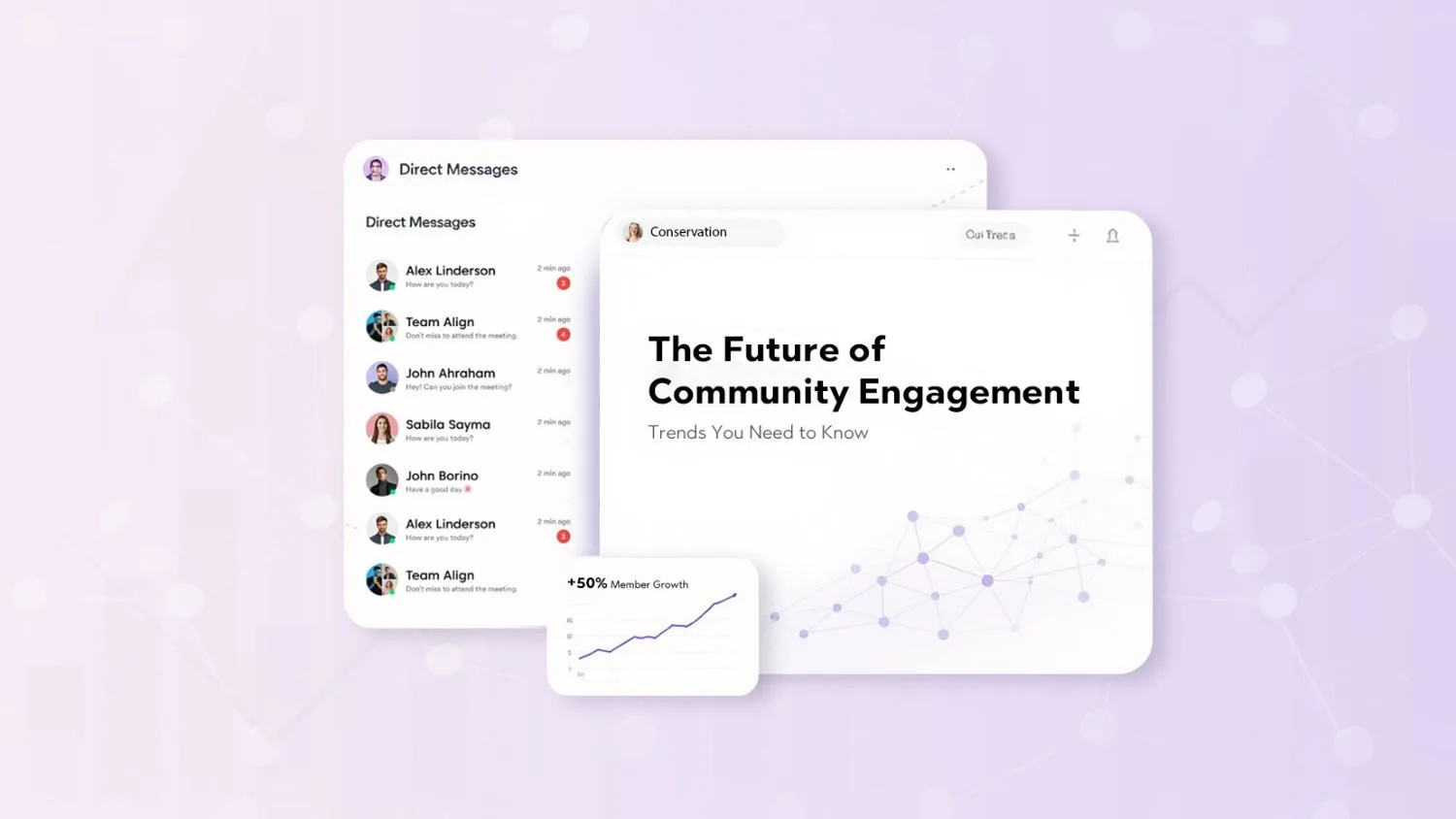The Future of Community Engagement: Trends You Need to Know
Community engagement continues to evolve. It has transitioned from a focus on grassroots activism and local advocacy to a data-powered, technology-enabled, and connected world. We see community engagement in social media, online forums, and platforms owned by brands, where most communities can exist independently of place or space. However, in a digital world, keeping abreast of community engagement trends is no longer optional, as it poses a threat to all businesses, creators, and associations that no longer evolve to be more relevant. Understanding the future of community platforms will help you foster loyalty through awareness, become more innovative through co-creation, and ultimately create lasting digital relationships.
Understanding Online Community Engagement
● What it’s going to mean in 2025 and beyond:
Online community engagement now moves beyond mere likes and comments and into a space of belonging where we do things together, share, cultivate, and make it matter. An online community is like a digital neighbourhood: welcoming, active, and responsive.
● The role of platforms/social media/forums:
Engagement today depends on community platforms, brand-owned forums, branded social media groups, etc. These online spaces give each user a voice and life to ongoing conversations, leading them to form profound relationships amongst themselves and with the brand.
● Engaged communities become passionate brand advocates, emphasising the importance of their products for others.
These communities offer helpful advice by creating a feedback loop that allows brands to evolve based on real user needs.
Why the Future of Community Platforms Matters
● From passive observers to active participants:
Modern platforms are built to give users the ability to post their own content, ideas, and opinions, making them feel like active co-creators.
● Platforms as ecosystems, not just content vending machines:
Community platforms are going through a metamorphosis to become ecosystems that provide everything, from learning to collaborative spaces and commerce outlets. They are no longer a place to dump content – they are an interactive environment of continued engagement.
● The business case for investing in communities:
Strong communities drive longer customer lifetime value and lower customer churn. Observation of an already high user lifetime value being overlaid through community-building techniques, investing in community-based tech can privilege an ROI higher than traditional marketing if users differentiate into grand brand evangelists.
Top Community Engagement Trends to Watch
● AI-Powered Customisation:
Artificial intelligence (AI) is transforming communities – recommending, introducing and moderating content on social media and other platforms. AI is powering communities, alongside chatbots, smart assistant applications, and more. User communities leverage the enhanced intelligence that AI brings to facilitate conversations, engagement and answering questions without the need for constant oversight and input from humans.
● Community-Generated Content:
People prefer community-generated content because it is more authentic and engaging than branded content. User communities are realising they will gain more authenticity and trust through community-generated content that leverages polls, blogs, and discussions led by members.
● Gamification Before Engagement:
Badges, leaderboards, points systems, etc., are the best tools to help convert potential users into active users. They promote active participation and engagement above passive participation and engagement due to the elements of competitive spirit and rewards for active participants.
● Hybrid and Virtual Spaces:
The lines that separate virtual and real communities are disappearing fast. Brands are taking real-world events, mixing them with virtual meetups while employing virtual reality (VR) and augmented reality (AR) to engage members and further facilitate and immerse conversations and relationships as well as deepen satisfaction or activity between members.
● Mobile-First and Application-Based Communities:
Mobile-first applications offer opportunities based on notifications so that members have easy access to their communities wherever they are. In-app notification alerts and content threads can stimulate conversations when members choose to partake!
● Analytics-Powered Engagement Strategies:
Data is the new community compass. Current platforms do this by employing behavior-based segmentation, predictive analytics, etc., so they can engage users with a nudge or drop personalised content sooner! We can hopefully improve engagement together.
Preparing for the Future of Community Engagement
● Audit your current platforms and engagement levels
Start by reviewing what’s working and what isn’t. Identify areas where engagement drops and analyse which features or formats users gravitate toward.
● Adopt modular, scalable community tools
Choose tools that can grow with your community – adding features like real-time chat, member badges, or analytics dashboards as needed. Scalability ensures long-term sustainability.
● Encourage member ownership and collaboration
When members feel a true sense of ownership, collaboration naturally follows. They don’t just participate- they invest, contribute ideas, and work together to build something meaningful. Empower them with clear roles, shared goals, and the freedom to make decisions. When everyone has a stake in the outcome, the collective energy fuels innovation and trust.
FAQs
1. What is the success of community engagement?
Success comes from building strong, trusting relationships. When users feel heard and involved, they stick around and bring others along.
2. What are the 3 C’s of community engagement?
Communication, Collaboration, and Commitment. These principles ensure everyone’s voice is heard, work is shared, and the community thrives long-term.
3. What is the scope of community engagement?
It includes everything from digital forums to town halls. Community engagement touches outreach, content, event planning, and platform development.
4. What is the main purpose of community engagement?
To listen, learn, and collaborate. Good engagement improves trust and creates meaningful dialogue that leads to better outcomes for everyone.






